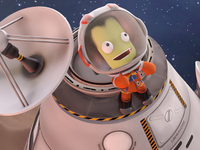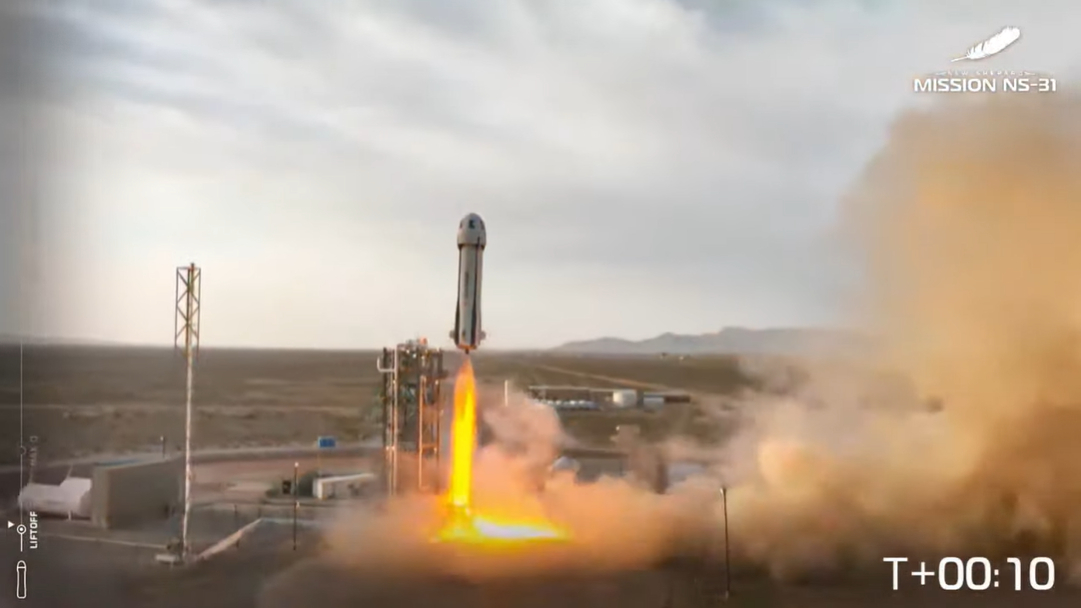Kerbal Space Program 2 will launch Kerbonauts with wild new hairdos and emotions
Are "Kerbals" made of fear, plants or of the same stuff as the orcs from Warhammer 40,000?
The developers of the popular video game "Kerbal Space Program," from Private Division and Intercept Games, wrestled with this question in a recent YouTube video while talking about the upcoming sequel, Kerbal Space Program 2 set to launch in 2022.
When the game finally drops, players can expect a lot more emphasis on how the Kerbals — the in-game astronauts — are feeling while they operate interstellar spacecraft. In moments of frustration, they'll scream and flail their hands before they try again to get the spacecraft working.
"Terror has always been a great thing [that] the Kerbals show," Michael Cook, the KSP franchise's executive producer at Private Division, said in the video. "It's [a] representation of us, of 'Oh my gosh! This is not going the way it's supposed to go!' "
Related: 'Kerbal Space Program 2' now launching in 2022
Kerbal Space Program | $39.99 from Green Man Gaming
Recreate real space missions or just watch your creations explode in the pursuit of the Mun and beyond in this space exploration game.
Long-time KSP players know the frustrations and joys of trying to make progress in a game that simulates space physics so closely, along with the challenges of building and launching the rockets and spacecraft that can carry the Kerbals. Several developers said the Kerbals' humanity is what helps to drive the game's popularity.
"By adding the Kerbals, you bring to it [the game] the emotion that is well-deserved for such astronomical feats," Paul Zimmer, a 3D animator and content engineer for Intercept Games, said in the same video. "Without them, you're not getting the in-game response of the awe-inspiring and explosively horrendous stuff you're doing in the game."
Get the Space.com Newsletter
Breaking space news, the latest updates on rocket launches, skywatching events and more!
Intercept's creative director, Nate Simpson, added that the presence of the Kerbals is inspiring to players as they try difficult things again and again in the game. The Kerbals are supposed to represent how we can rise into space from making mistakes repeatedly and learning from them.
"They only do the wrong thing all the time," Simpson added of the Kerbals, "but somehow they stumbled into an interstellar civilization."
Key changes to the Kerbals in KSP 2 include more facial expressions, more hairdos, more distinctive personalities and some hilarious (and cute) responses to the physical forces they experience as they go through space, if the teaser video is any indication.
From what the developers tell us, the Kerbals respond even more noticeably if they are under a lot of "G-forces" — one "G-force" being the equivalent of Earth's gravity. International Space Station astronauts in recent years have experienced 7 to 8 G-forces during unusual re-entries into Earth's atmosphere, although 3 or 4 G-forces is more typical.
KSP 2 was supposed to drop in 2020, but was delayed several times as the company strove to reach a "stable, polished whole," for the game features, Simpson told fans on a Kerbal forum last fall, acknowledging that the fan base is frustrated by the wait.
"We're creating a reliable foundation on which players and modders alike can build for another decade or more. That involves solving problems that have never been solved before, and that takes time," he said at the time.
Follow Elizabeth Howell on Twitter @howellspace. Follow us on Twitter @Spacedotcom and on Facebook.
Join our Space Forums to keep talking space on the latest missions, night sky and more! And if you have a news tip, correction or comment, let us know at: community@space.com.

Elizabeth Howell (she/her), Ph.D., was a staff writer in the spaceflight channel between 2022 and 2024 specializing in Canadian space news. She was contributing writer for Space.com for 10 years from 2012 to 2024. Elizabeth's reporting includes multiple exclusives with the White House, leading world coverage about a lost-and-found space tomato on the International Space Station, witnessing five human spaceflight launches on two continents, flying parabolic, working inside a spacesuit, and participating in a simulated Mars mission. Her latest book, "Why Am I Taller?" (ECW Press, 2022) is co-written with astronaut Dave Williams.










